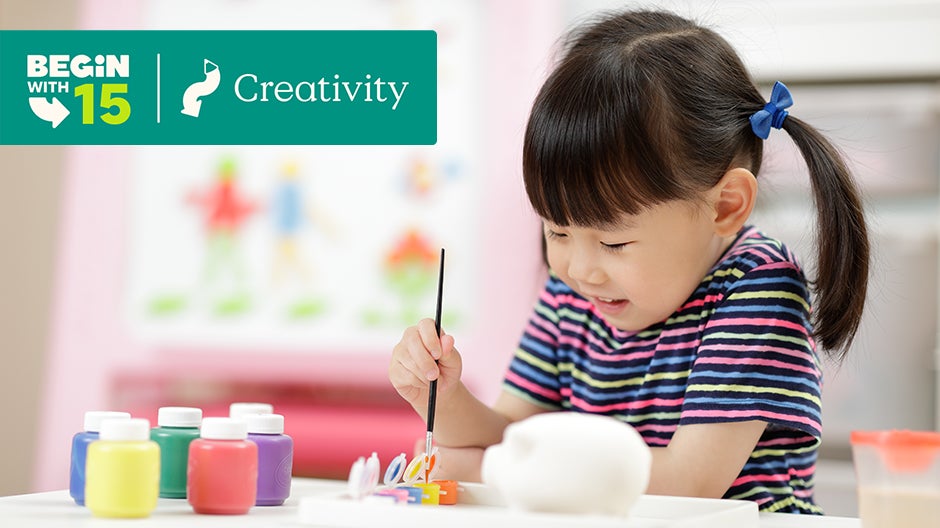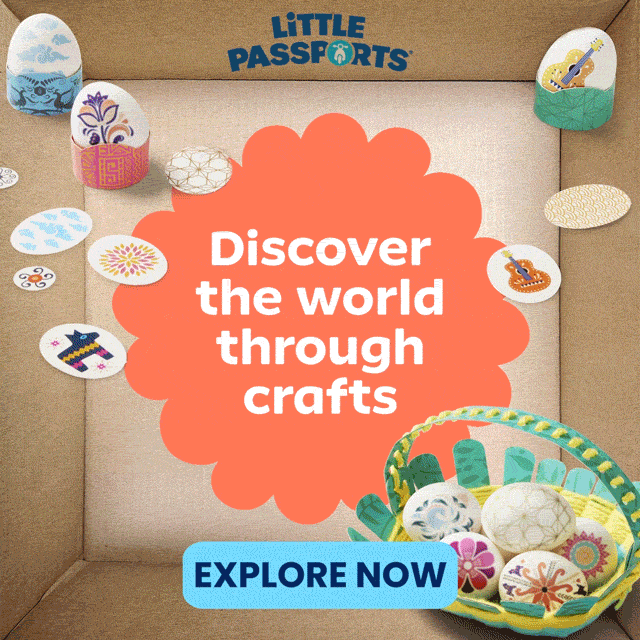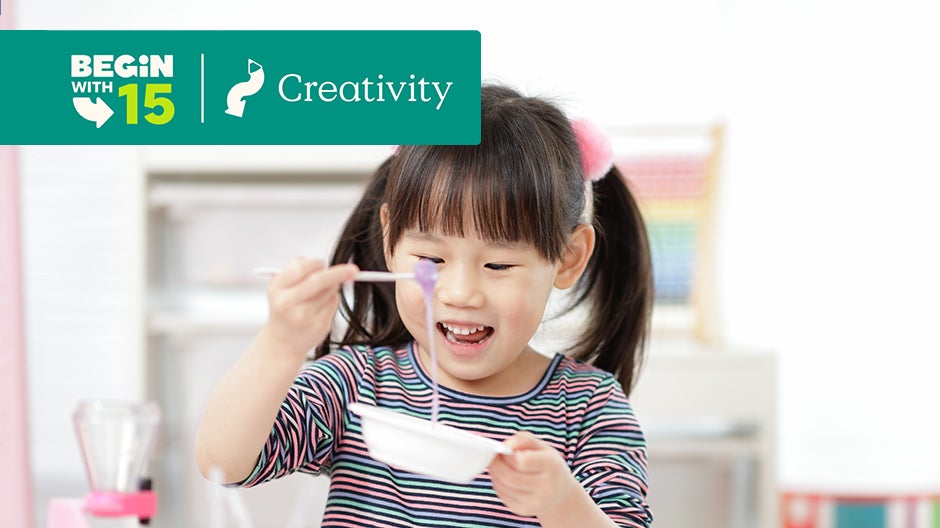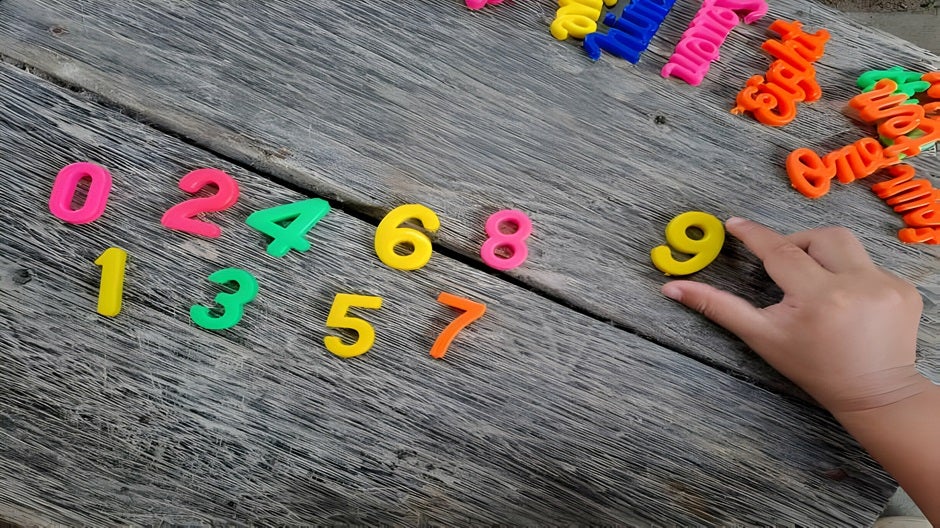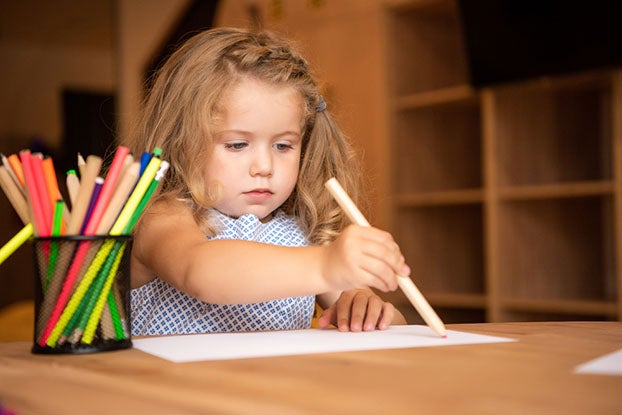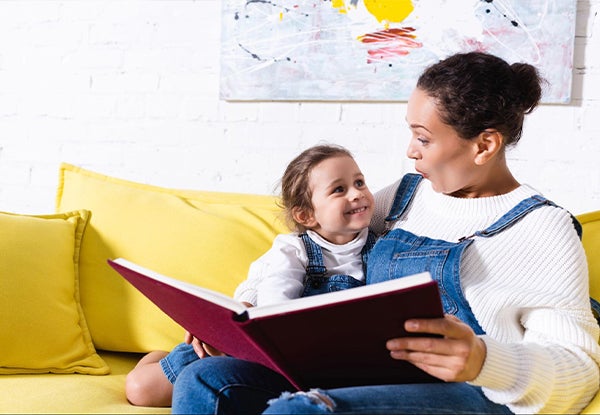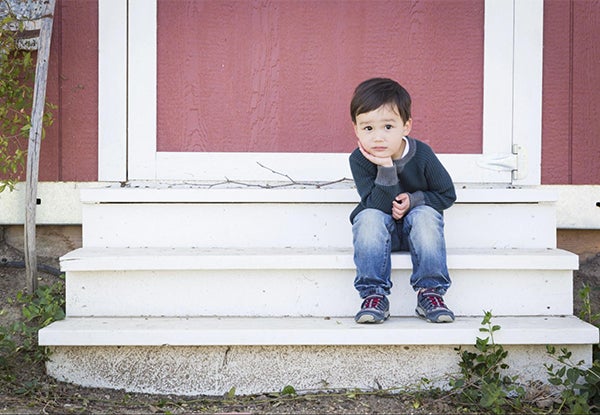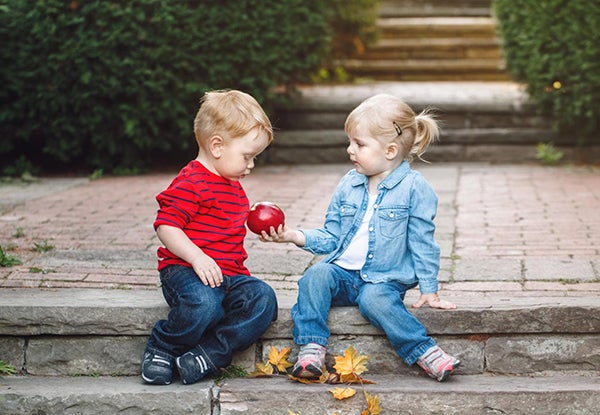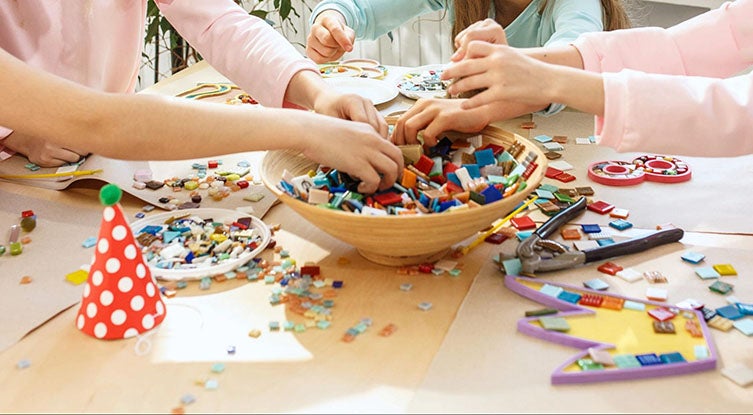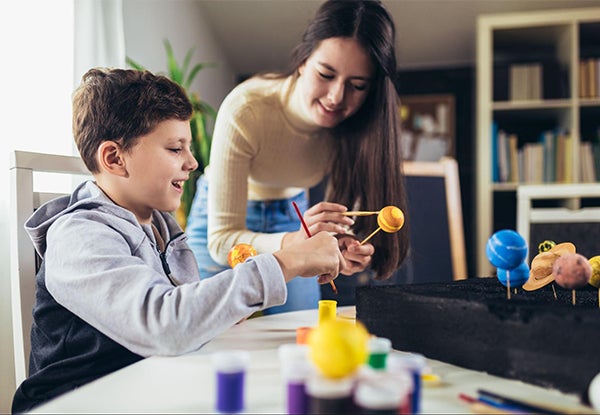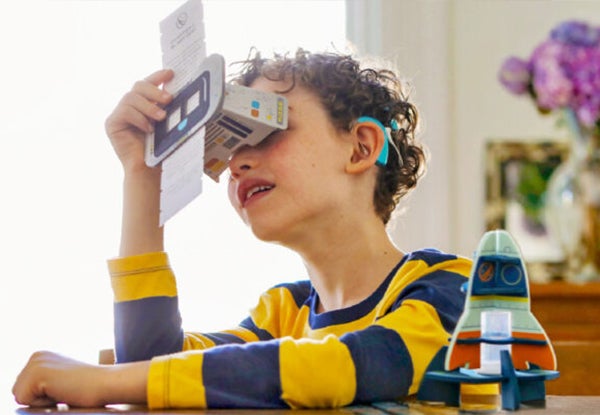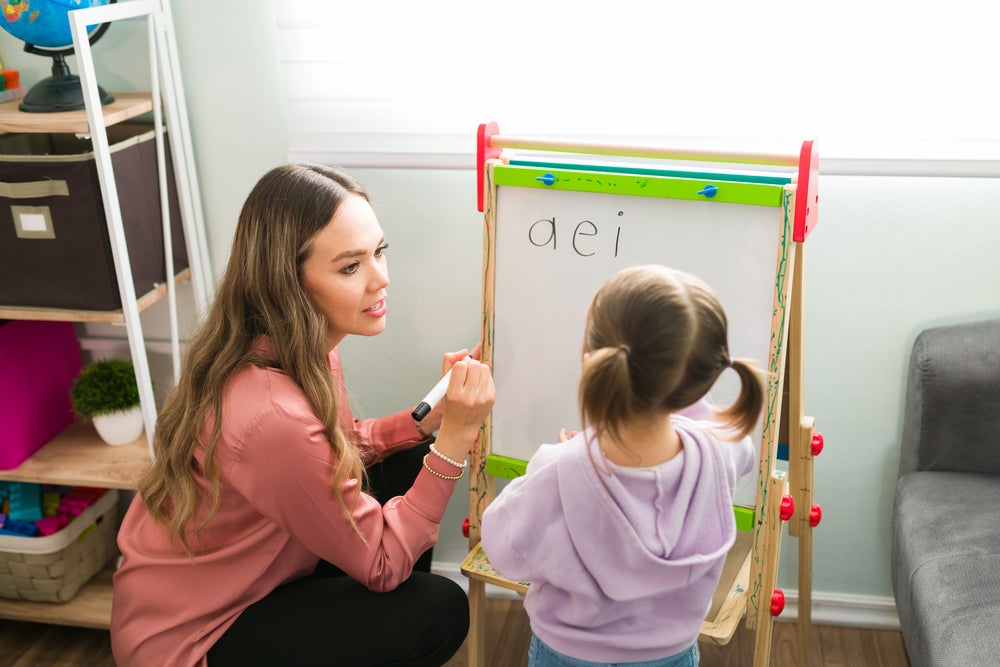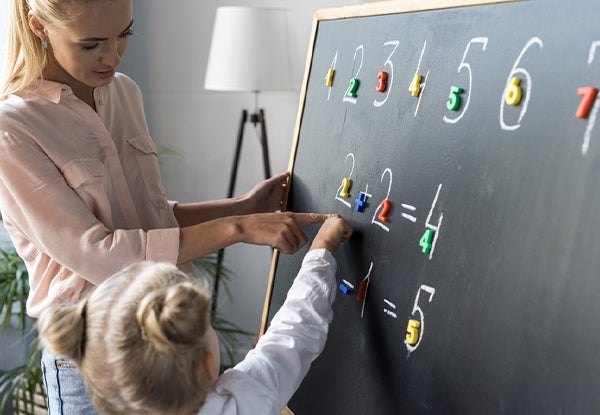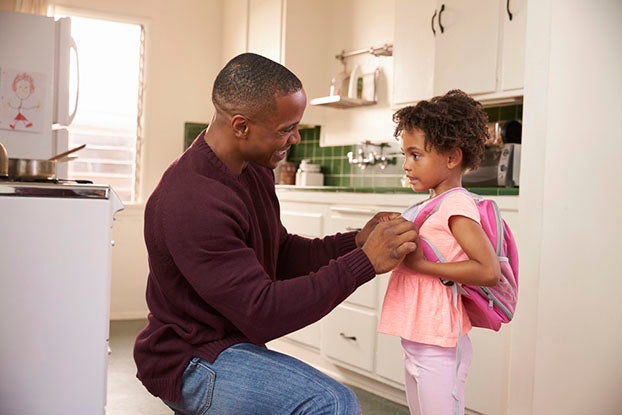Fingerpaints and shaving cream, paint and markers and doodling—easy art projects for kids are a fun way to liven up family time. Making art with your kids, even with just a few art supplies, opens new worlds of expression for them and leaves you with vibrant, unforgettable relics of their childhood.
But art projects aren’t just fun—they help kids develop Creativity, one of the 5 C’s at the heart of the Begin Approach to helping kids thrive in school and life. Creativity is the ability to come up with solutions to problems, invent new ideas, and express oneself. It’s one of the most important skills for success in all areas of life.
The Short Cut
- Creativity, one of the 5 C’s that help kids thrive in school and life, is one of the most sought-after skills among employers
- Young children score very high in tests of creativity, but most kids become less creative over time
- Parents can help kids develop creativity through art by encouraging experimentation, embracing mess, and not fixating on “right” or “wrong” techniques
- Developing the 5 C’s doesn’t need to be complicated. You can make a big difference in only 15 minutes a day!
Why Art Projects for Creativity?
Many things we teach our kids have one right answer: How do you cross the street safely? What does 2+2 equal? Where do your socks go? In order to master academic Core Skills (another of the 5 C’s) and get along in life, kids need to be able to memorize correct information and quickly recall it.
But not everything in life has a simple solution. To help our kids thrive, we need to give them chances to explore activities where there is no right answer, where they can play make-believe, experiment, get messy, make mistakes, and start over without consequences. Art projects are a great fit for the job.
Ready to help your kids get creative? We’ve got easy art ideas to help!
Easy, Fun Art Projects for Kids
Ping-Pong Ball Painting
This craft encourages kids to experiment with ping-pong balls and paint to create vibrant, surprising works of art. It’s great for encouraging creativity because it’s so unusual—it’s a totally different way of making images than doing a coloring sheet or scribbling with markers.
What You’ll Need
- Ping-pong balls
- 3–6 colors of nontoxic acrylic paint
- Empty egg carton
- White paper
- Cardboard box (one per child, similar in size to the paper)
- Masking tape
- Markers, pencils, and craft supplies (optional)
- Picture frame (optional)
What to Do
- Pour about a tablespoon of paint into each hole of the egg carton, one color per hole. Dilute the paint with a few drops of water and stir until it’s mixed.
- Put paper at the bottom of the cardboard box and tape down the edges.
- Have kids place a ping-pong ball into a color of paint and gently spin the ball to coat it. Repeat with one ball for each of the other colors. Kids can wash their hands off between colors to keep them from mixing, or you can see what happens if they don’t!
- Once the balls are painted, have the kids place them in the box with the paper. Close the box and tape it shut. Kids may need to wash their hands again at this stage.
- Shake it up! Let each kid shake their box as much as they want. Once they’ve finished, open the box to reveal the finished product.
To get even more creative, kids can draw on the finished artwork, sign their name, stick feathers or other craft materials on it, whatever they like! Once the masterpiece is complete, they can give it to a loved one or put it in a frame for their own room.
Rock Paintings
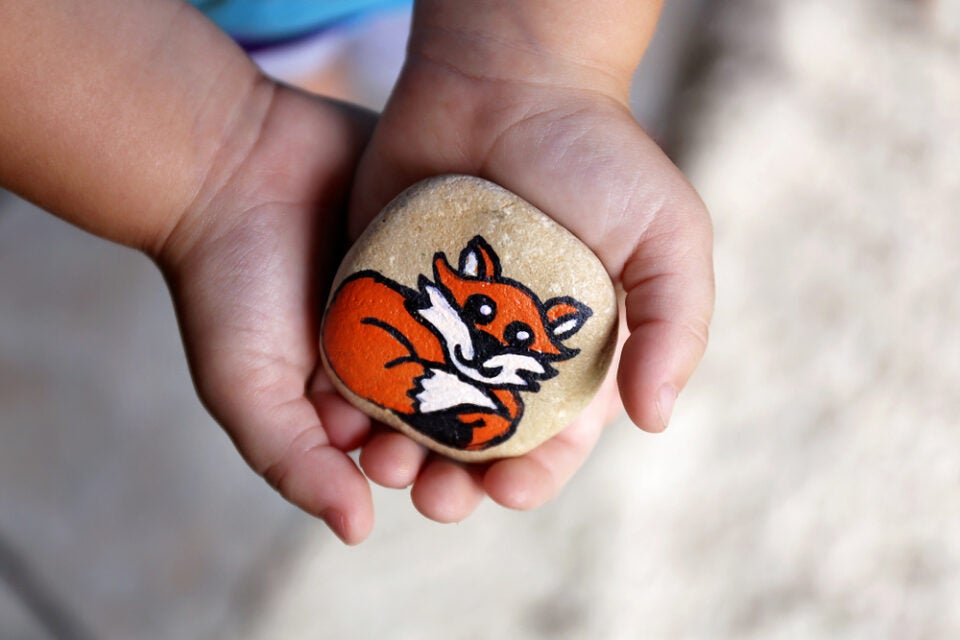
Rock paintings connect kids to one of the most ancient forms of human creativity. You can start with something as small as a pebble from the sidewalk, use a stone dug up in a garden, or paint a boulder in the backyard. It’s up to you!
What You’ll Need
- Rocks
- Small paintbrushes
- Nontoxic acrylic paints (in a variety of colors)
What to Do
- Explain to the kids that you’re looking for rocks to make art with, then have them collect a few. Smooth rocks with a flat side are easiest to paint, but there’s creative value in seeing how a jagged surface changes an image too!
- Wash the rocks, then let them dry fully.
- Get out the acrylic paints and brushes and turn the kids loose! They can paint animals or people, messages or symbols, whatever their imaginations come up with.
- Let the paint dry. Now you’ve got your own rock art!
Bubble Glazing
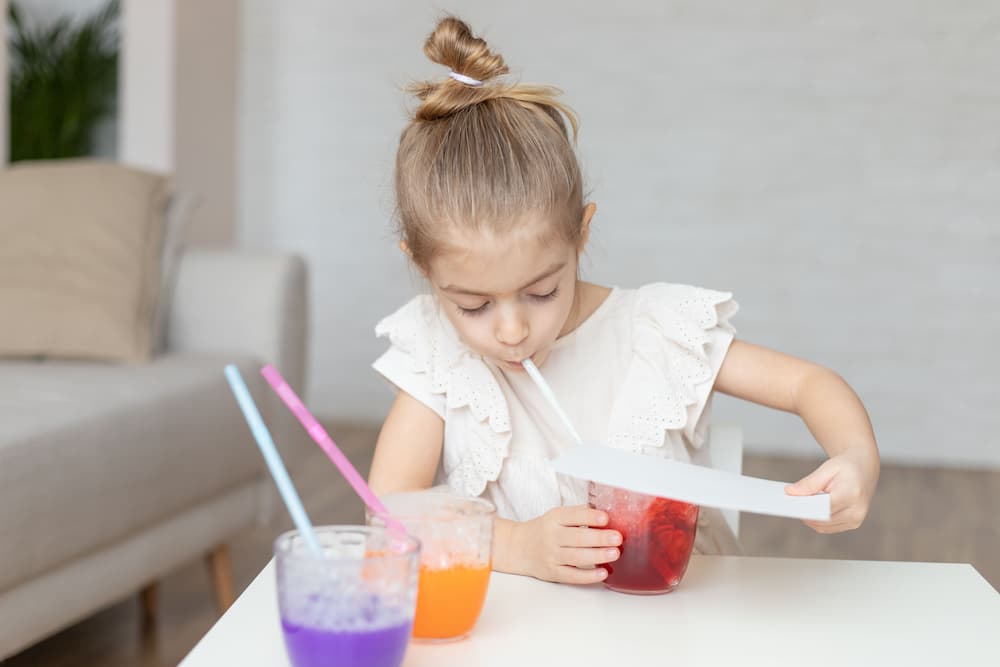
Do your kids love blowing bubbles in a cup of milk? Great! They can use the same technique with diluted paint to flex their imaginations at the kitchen table. (Just put down a protective covering first, because this one can get messy!)
What You’ll Need
- White cardstock
- Dish soap
- Washable, nontoxic tempera paint
- Small plastic cups (1 per color)
- Plastic straws (1 per color)
- Paper
What to Do
- In a small cup, mix ½ cup of water, a generous squirt of dish soap, and 1 teaspoon of paint. Repeat this step for each color you want to use.
- Now for the fun part! Have the kids place a straw in each cup and blow into it to create bubbles. Keep blowing until the bubbles reach over the cup’s top edge.
- Have the kids place a sheet of paper over the top of a cup, then pull it off and see how it creates a colorful imprint of the bubbles.
- Repeat with as many colors as they’d like! To stretch kids’ creativity, challenge them to try making an image using this technique.
Basquiat-Inspired Self-Portrait
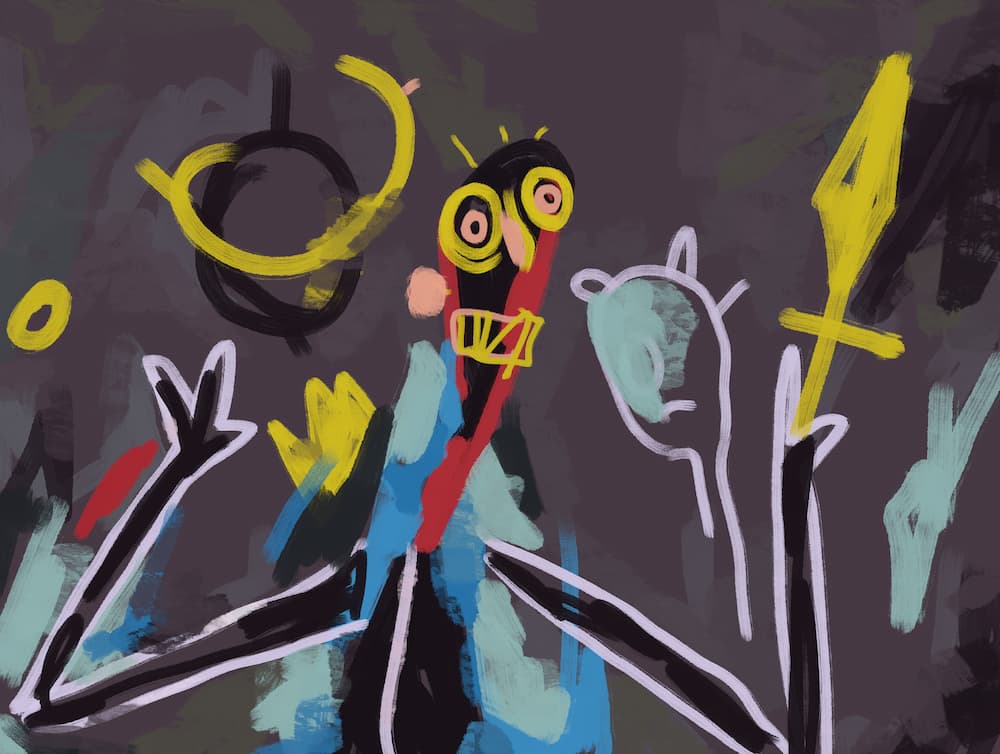
Jean-Michel Basquiat changed the world of art in the late 20th century, and he didn’t need a lot of fancy tools to do it. This drawing project from Little Passports, Begin’s award-winning line of subscription boxes that develop Creativity and Curiosity, helps kids bring that lesson home.
What You’ll Need
- Drawing paper
- Colored pencils or pastels
What to Do
1. Have the kids create backgrounds for the self-portraits using pastels or colored pencils. Color blocks, scribble lines, or words all work well.
2. Next the kids should draw a picture of themselves over their background.
3. Encourage the kids to put other images in their self-portrait, like Basquiat often did. They could add objects representing things they’re proud of or that they struggle with, things they feel a strong attachment to, or anything they think is important in the story of their life.
Artists have used self-portraits for centuries as a creative way of expressing themselves. This activity is a great way to get your kids doing the same. Ask about the choices they made—their answers may surprise you!
Homemade Puffy Paint
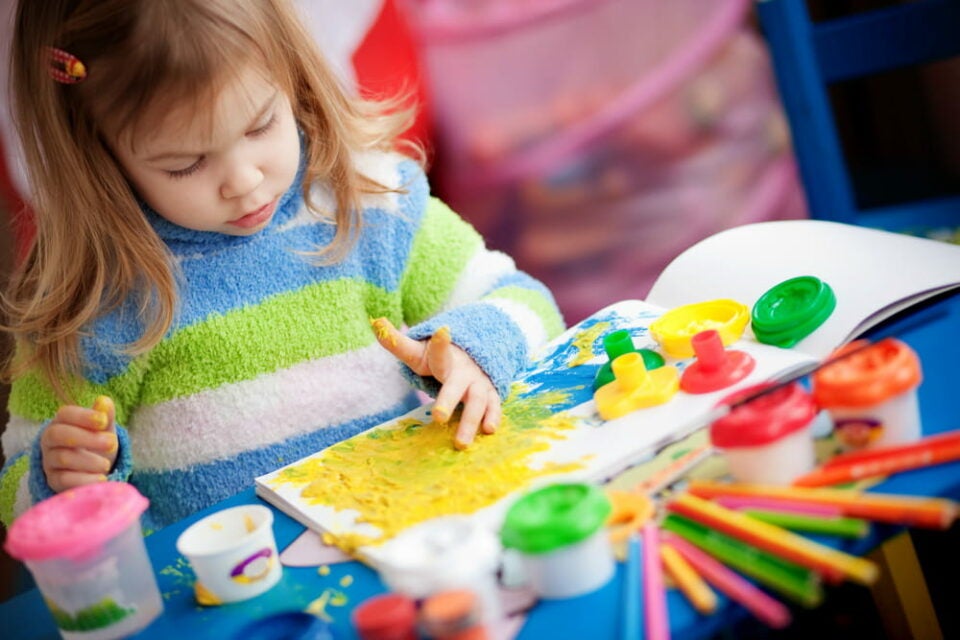
This recipe for homemade puffy paint lets even the youngest kids start making hands-on art. It’s a great preschool art project, but it’s fun for older kids and adults, too!
What You’ll Need
- 1 cup of shaving cream
- 1 cup of white glue (like Elmer’s Glue, but any brand will work)
- Four different colors of food coloring or water-based paint
- Paintbrushes, craft sticks, or a squeeze bottle
What to Do
- Measure the glue with your child and pour it into a container.
- Ask them to spray shaving cream into the container until they’ve added an amount roughly equal to the glue. Younger kids will need help with this step.
- Mix the glue and shaving cream together. Kids can do this with a spatula or their hands.
- Split the mixture up into four small bowls.
- Using a different color for each bowl, add about a teaspoon of washable paint or 10-15 drops of food coloring into the bowls. Stir until the color is consistent.
Once the colors are blended, it’s time for art! Kids can use paintbrushes, craft sticks, a squeeze bottle, or their fingers to swab, swish, and get creative. Encourage them to try out different tools and see how each creates a different kind of design.
Keep It Fun and Creative with Begin
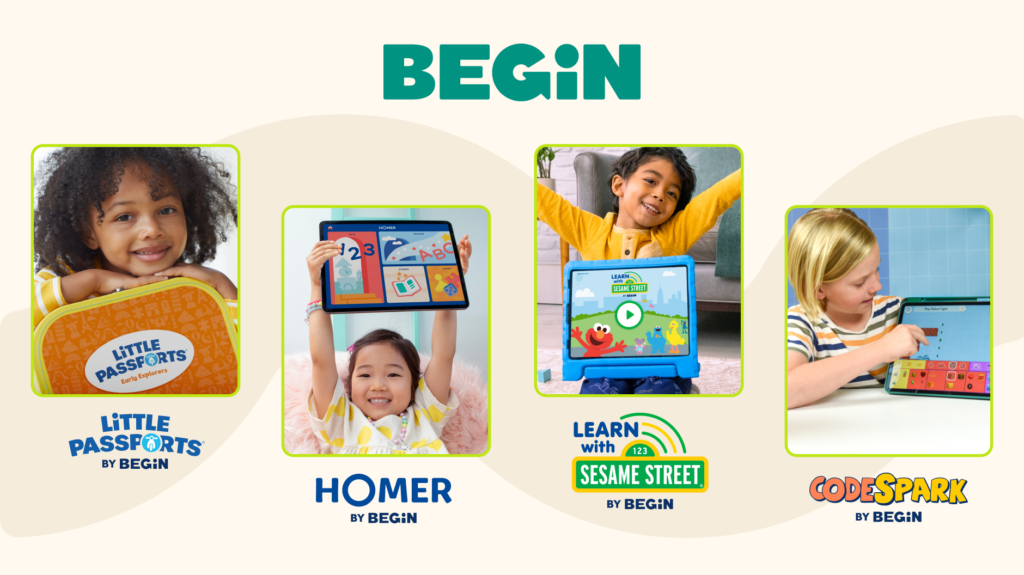
So much of what kids learn is about finding the right answers, but art is subjective and doesn’t have right answers. Mixing art projects into your kids’ routines will help them stay creative in ways that benefit them for their whole lives.
Begin can help!
Our age- and stage-matched learning membership offers kids fun artistic activities suited their to abilities and interests. They might be making digital art with HOMER, hands-on projects with Little Passports, or building their own video game levels in codeSpark!
Take our online quiz today and see how Begin can help your family!
